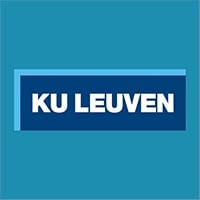Improving Lung Transplant Outcomes: From Mouse Models to Molecular Targets
Position Details (PhD Program)
Prof. Laurens Ceulemans, a thoracic surgeon and Director of the Leuven Lung Transplant Centre, leads this project. His research group at the BREATHE lab is dedicated to experimental and translational lung transplantation, with a central ambition to innovate in genetic immunomodulation to prevent organ rejection.
This PhD project (DC1) is a cornerstone of the LifeLUNG initiative. You will combine a state-of-the-art murine ex vivo lung perfusion (EVLP) and transplant model with single-cell RNA sequencing on clinical samples from transplant recipients. The goal is to integrate human and murine data to uncover shared disease mechanisms, enabling the discovery of targeted interventions and clinically relevant biomarkers.
Project
The LifeLUNG Project – Context
Patient survival after lung transplantation (LTx) for end-stage pulmonary disease is poor (5-year survival rate of 59%) due to ischemia reperfusion injury (IRI) and graft rejection. No therapies are available to prevent IRI, and current immunosuppression causes toxicity and morbidity. Novel strategies are required that can mask the graft from the recipient’s immune system.
The LifeLUNG MSCA Doctoral Network unites the critical building blocks available in Europe to advance towards a novel paradigm for LTx. The project aims to advance ex vivo lung perfusion (EVLP) technology to enhance our understanding of transplant rejection through accessible models. By utilizing biobanks of lung biopsies and established animal models, LifeLUNG will apply advanced machine learning and AI-driven deep sequencing to identify key immune factors and gene targets. These will be targeted with gene therapeutic agents (GTAs) delivered during EVLP to selectively modulate immune responses and improve long-term outcomes.
The DC1 objectives are:
- To develop a mouse model of ex vivo lung perfusion (EVLP) and establish proof-of-concept.
- To obtain transcriptomic signatures for ischemia-reperfusion injury (IRI) and rejection from both mouse models and human clinical samples, identifying key gene targets for each.
- To evaluate the modulation of the top 3 IRI and top 3 rejection target genes in the new EVLP model and an existing lung transplant (LTx) mouse model to improve outcomes.
A successful project will result in:
- A developed and optimized mouse EVLP platform.
- AI-based identification of 3 IRI and 3 rejection target genes expressed in both mice and human samples.
- Application of the top target genes in EVLP followed by mouse LTx to validate their therapeutic potential.
- Publicly available datasets uploaded to the GEO repository.
Enrolment in Doctoral School: KUL Doctoral School of Biomedical Sciences, Faculty of Medicine
Planned Secondments:
- Miltenyi Biotech GmbH, Germany: MACSima analysis of clinical samples (months 12-13)
- Omniscope España SL, Spain: RNAseq, spatial proteomics and AI (months 14-15)
- Medical University of Vienna, Austria: GTA tests in an isolated lobar perfusion model (months 18-20)
- Association Hôpital Foch, France: Evaluation in an extended human EVLP system (month 40)
Profile
Essential requirements of a successful candidate:
- You hold a Master’s degree (no PhD) in bioengineering, biomedical sciences, biotechnology, or are an MD.
- You are passionate about translational life sciences and want to achieve a PhD degree on the topic described above.
- You are ambitious, well-organized, and have excellent communication skills.
- You are proficient in English, both spoken and written.
- You have a solutions-oriented mindset that thrives in a multidisciplinary team.
- You have the ability to work independently and have a critical mindset.
- You are an enthusiastic and motivated person, eager to participate in network-wide training events, international travel, and public awareness activities.
- Willingness to travel for secondments and collaborations.
Skills and expertise that are viewed as an asset:
- Practical experience with animal experiments, ideally including basic surgical techniques or handling of murine models.
- Basic knowledge of immunology or molecular biology (e.g., PCR, ELISA, flow cytometry).
- Familiarity with cell culture techniques and sterile lab practices.
- Interest in transcriptomics and a willingness to learn single-cell RNA sequencing workflows.
- Experience with data analysis tools (e.g., Excel, GraphPad, or introductory R/Python) is a plus.
- Strong motivation to work in translational biomedical research with direct relevance to lung disease and transplantation.
Offer
The selected candidate will receive an attractive salary in accordance with the MSCA regulations for Doctoral Researchers. The exact (net) salary will be confirmed upon appointment and is dependent on local tax regulations and on the country correction factor. The salary includes a living allowance, a mobility allowance, and a family allowance (if applicable). The guaranteed PhD funding via the MSCA network is for 36 months (i.e., EC funding). We provide an additional PhD year through external funding sources, allowing for a full 4-year PhD trajectory, which is standard in Belgium.
How to Apply
This position is part of the LifeLUNG MSCA Doctoral Network. For more information on the project and to submit your application, please visit the official project portal at:
www.lifelung.eu
Interested?
For more information please contact Mrs. Marina Da Cunha, mail: [email protected] or Prof. dr. Laurens Ceulemans, mail: [email protected].
KU Leuven strives for an inclusive, respectful and socially safe environment. We embrace diversity among individuals and groups as an asset. Open dialogue and differences in perspective are essential for an ambitious research and educational environment. In our commitment to equal opportunity, we recognize the consequences of historical inequalities. We do not accept any form of discrimination based on, but not limited to, gender identity and expression, sexual orientation, age, ethnic or national background, skin colour, religious and philosophical diversity, neurodivergence, employment disability, health, or socioeconomic status. For questions about accessibility or support offered, we are happy to assist you at this email address.



 KU Leuven
KU Leuven